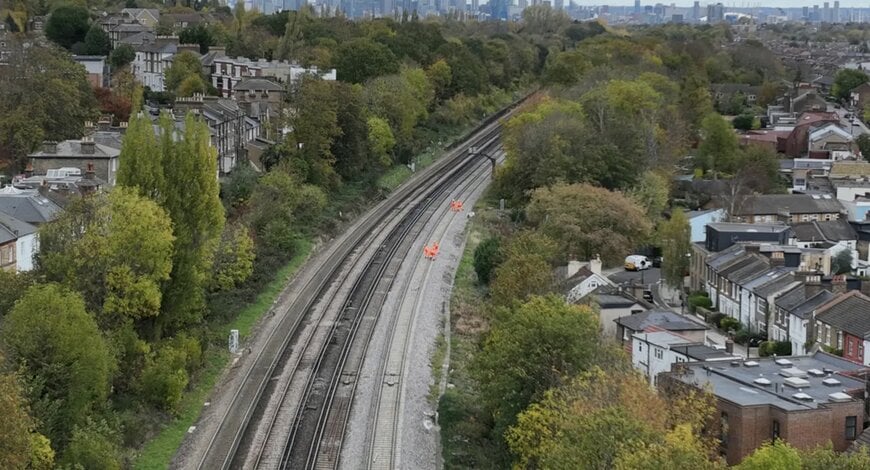railway-international.com
13
'25
Written on Modified on
VolkerRail delivers first low-carbon track renewal for the Southern Renewals Enterprise
UK’s first low-carbon track renewal combines green steel rail, low-carbon concrete, recycled ballast and renewable biofueled trains, creating significant carbon reductions through innovative materials and methods.
www.volkerrail.co.uk

VolkerRail has completed the Southern Renewals Enterprise’s first low carbon track renewal, and the UK’s first combining green steel rail, low-carbon concrete, recycled ballast and renewable biofueled trains, creating significant carbon reductions through innovative materials and methods; Marking another step toward greener rail infrastructure.
Working towards a greener future, VolkerRail has successfully delivered its second low-carbon track renewal, this time combining green steel rail, low-carbon concrete, recycled ballast and renewable biofueled trains, to cut emissions without compromising performance.
The 1,150 yards renewals, delivered over two core weekends between Honor Oak Park and Forest Hill, was completed as part of the Southern Renewals Enterprise – Network Rail’s integrated delivery team in the south of England – of which, VolkerRail is the track delivery partner.
Steel rails, concrete sleepers, and ballast, all traditionally produced through carbon-intensive processes, account for a significant share of the overall carbon footprint in track renewals, as much as 90%. To address this challenge, the project team delivered a renewal showcasing multiple low-carbon innovations, working together in a live operational environment. These included:
- Green steel rail manufactured using an electric arc furnace, achieving around 60% lower carbon intensity compared with traditional blast furnace steel.
- 3,240 tonnes of blended ballast, achieving up to 13% carbon savings by reducing the need for virgin aggregate.
- 2,100 low-carbon concrete sleepers, designed to deliver an estimated 40% reduction in embodied carbon.
- Seven ISCC-certified HVO (hydrotreated vegetable oil) powered trains used for material transportation, supporting reductions in direct CO₂e emissions at the point of combustion.
Sustainable welfare units were also utilised, reducing the need for diesel generators and cutting on-site emissions.
The combination of these innovations resulted in a 63% (581 tCO2e) reduction in carbon emissions compared with baseline materials and transport methods. This is equivalent to the annual emissions of around 200 UK households.
Beyond the carbon savings, the project demonstrated the power of collaboration between VolkerRail, Network Rail’s Supply Chain Operations (SCO), the SRE’s environment and sustainability team, and wider ecosystem partners across the supply chain.
VolkerRail is setting the standard for low-carbon track renewals, with this recent success closely following the UK’s first low-carbon track renewal, delivered by the TRU East Alliance, as part of the Transpennine Route Upgrade. The achievement at Cross Gates also resulted in a 63% reduction in embodied carbon across a 660 metre section of track.
Beyond the carbon savings, the project demonstrated the power of collaboration between VolkerRail, Network Rail’s Supply Chain Operations (SCO), the SRE’s environment and sustainability team, and wider ecosystem partners across the supply chain.
VolkerRail is setting the standard for low-carbon track renewals, with this recent success closely following the UK’s first low-carbon track renewal, delivered by the TRU East Alliance, as part of the Transpennine Route Upgrade. The achievement at Cross Gates also resulted in a 63% reduction in embodied carbon across a 660 metre section of track.

